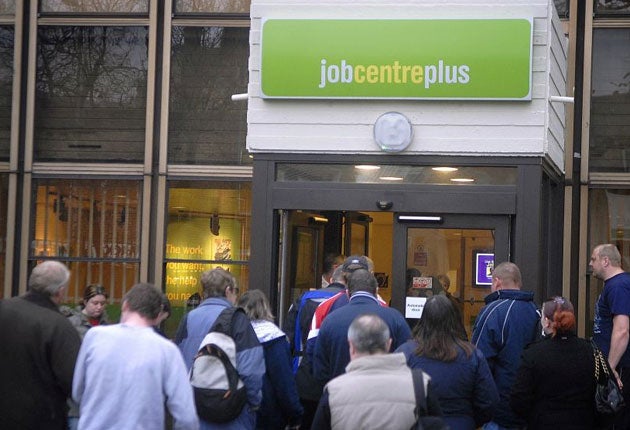Number of jobless under-24s expected to pass the million mark

In Japan they call them freeters, an amalgamation of "freelance" and the German word for workers, arbeiter. The Tunisians opt for hittistes, an Arabic phrase which roughly translates as people who lean against walls. In Britain we prefer the term NEETs to describe the swelling ranks of our young who are "not in education, employment or training".
Tomorrow the Office for National Statistics will release the latest employment figures from the past three months, with most analysts expecting the number of under-24s out of work to pass the one million mark for the first time since the early 1990s. As Paul Brown, director of the youth charity The Prince's Trust, put it earlier this summer: "Youth unemployment is like a dripping tap, costing tens of millions of pounds a week through benefits and lost productivity. And, just like a dripping tap, if we don't do something to fix it, it's likely to get much worse."
According to the last release of figures, unemployment among under-24s officially stands at 973,000 but the growing belief among some economists is that over the past three months – with so many new graduates flooding into the job market during the summer – the figures might have risen by as much as 90,000, taking them into seven figures for the first time since 1993. For the pessimists it heralds a return to two decades ago when the young were hit disproportionately hard and suffered for years afterwards.
"The 1980s recession was a generational disaster and there is a major risk of it happening all over again," says Richard Exell, a labour market expert at the Trades Union Congress. "Whatever interpretation economists might have as far as ordinary people are concerned, we are already in a double-dip recession and young people are clearly bearing the brunt of it."
The effects of long-term unemployment are often depressingly long lasting. The TUC's research has shown that those who were out of work for more than a year during the 1980s were more likely to struggle and earn less during the current crisis.
Subscribe to Independent Premium to bookmark this article
Want to bookmark your favourite articles and stories to read or reference later? Start your Independent Premium subscription today.

Join our commenting forum
Join thought-provoking conversations, follow other Independent readers and see their replies